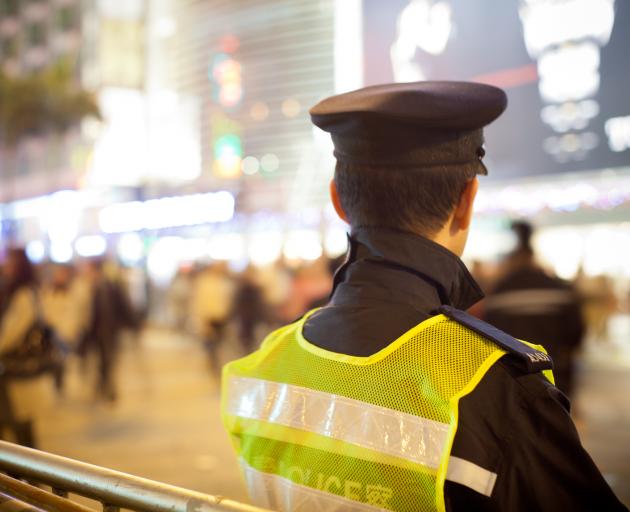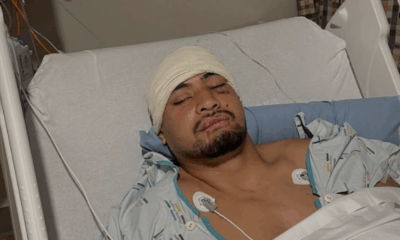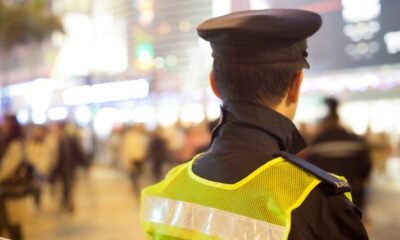Politics
Hong Kong Issues Arrest Warrants for 19 Activists in Controversial Case

Hong Kong has issued arrest warrants for 19 overseas activists, accusing them of organizing or participating in the so-called “Hong Kong Parliament.” Authorities claim this group aimed to subvert state power under the national security law imposed by Beijing in 2020, following extensive pro-democracy protests in 2019. The activists are alleged to have either launched a referendum or run as candidates in this unofficial assembly, which seeks self-determination and the drafting of a “Hong Kong constitution.”
Charges and Implications
According to police, the organization intended to overthrow the governments of both China and Hong Kong through unlawful means. Investigations are ongoing, with further arrests anticipated. Among those named are businessman Elmer Yuen, commentator Victor Ho, and activists Johnny Fok and Tony Choi. Four individuals already face existing arrest warrants, each with a bounty of HK$1 million (approximately NZ$211,000).
The remaining 15 activists, for whom the police have set a bounty of HK$200,000 each, are believed to have played significant roles in organizing the election and were sworn in as councillors. Efforts to reach the accused for comment were unsuccessful.
International Response
The move has drawn sharp criticism from the United Kingdom. The UK’s Foreign Secretary and Home Secretary issued a joint statement condemning the arrests as “another example of transnational repression,” asserting that such actions damage Hong Kong’s international standing. They emphasized that the UK would not tolerate attempts by foreign governments to coerce or intimidate critics abroad.
In a rebuttal, the Chinese embassy in the UK described the British government’s remarks as a “gross interference” in China’s internal matters. The embassy urged the UK to abandon what it termed a “colonial mentality” and to cease its interference in Hong Kong affairs, accusing it of shielding criminals.
Hong Kong, which returned to Chinese sovereignty in 1997, was guaranteed a high degree of autonomy, including freedom of expression, under the “one country, two systems” framework. Critics of the national security law argue that it is being used to suppress dissent. Chinese and Hong Kong authorities maintain that the law is essential for restoring stability after the city experienced months of often violent protests in 2019.
Police reiterated the seriousness of national security offenses, which they claim have extraterritorial reach. They urged the wanted individuals to return to Hong Kong and surrender. “If offenders voluntarily cease their illegal activities, turn themselves in, and provide key information, they may be eligible for reduced punishment,” a police statement indicated.
Additionally, police warned that assisting or funding participation in the “Hong Kong Parliament” could lead to criminal charges.
-

 World3 weeks ago
World3 weeks agoPrivate Funeral Held for Dean Field and His Three Children
-

 Top Stories3 weeks ago
Top Stories3 weeks agoFuneral Planned for Field Siblings After Tragic House Fire
-

 Sports3 months ago
Sports3 months agoNetball New Zealand Stands Down Dame Noeline Taurua for Series
-

 Entertainment3 months ago
Entertainment3 months agoTributes Pour In for Lachlan Rofe, Reality Star, Dead at 47
-

 Entertainment2 months ago
Entertainment2 months agoNew ‘Maverick’ Chaser Joins Beat the Chasers Season Finale
-

 Sports3 months ago
Sports3 months agoSilver Ferns Legend Laura Langman Criticizes Team’s Attitude
-

 Sports1 month ago
Sports1 month agoEli Katoa Rushed to Hospital After Sideline Incident During Match
-

 Politics2 months ago
Politics2 months agoNetball NZ Calls for Respect Amid Dame Taurua’s Standoff
-

 World4 weeks ago
World4 weeks agoInvestigation Underway in Tragic Sanson House Fire Involving Family
-

 Entertainment1 week ago
Entertainment1 week agoJacinda Ardern Discusses Popularity Decline on Graham Norton Show
-

 Sports2 weeks ago
Sports2 weeks agoEli Katoa Shares Positive Recovery Update After Brain Surgery
-

 Top Stories3 weeks ago
Top Stories3 weeks agoShock and Grief Follow Tragic Family Deaths in New Zealand










